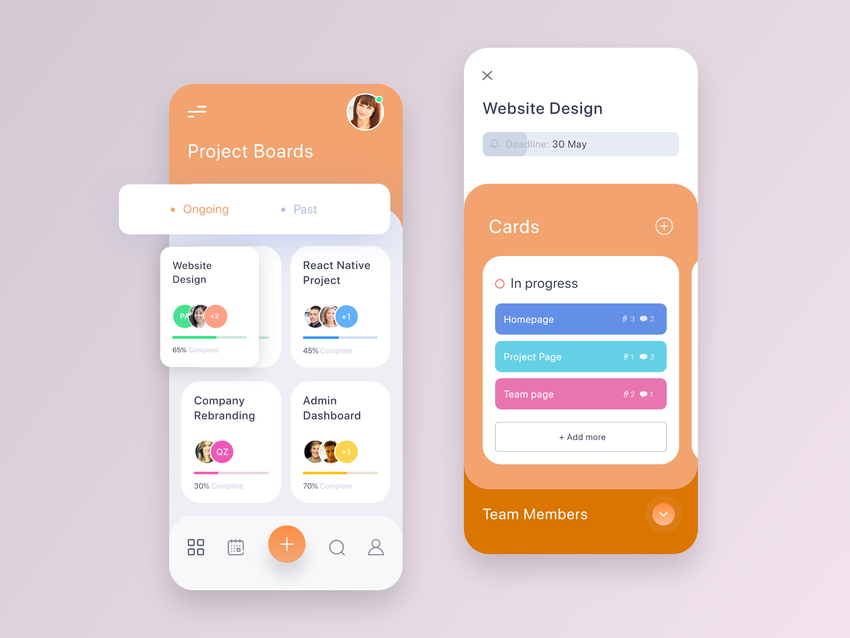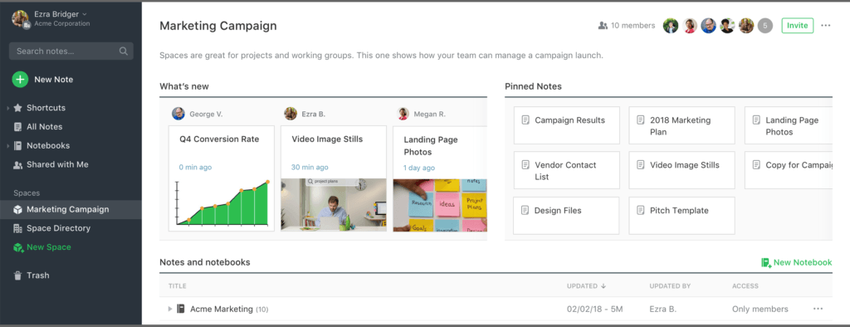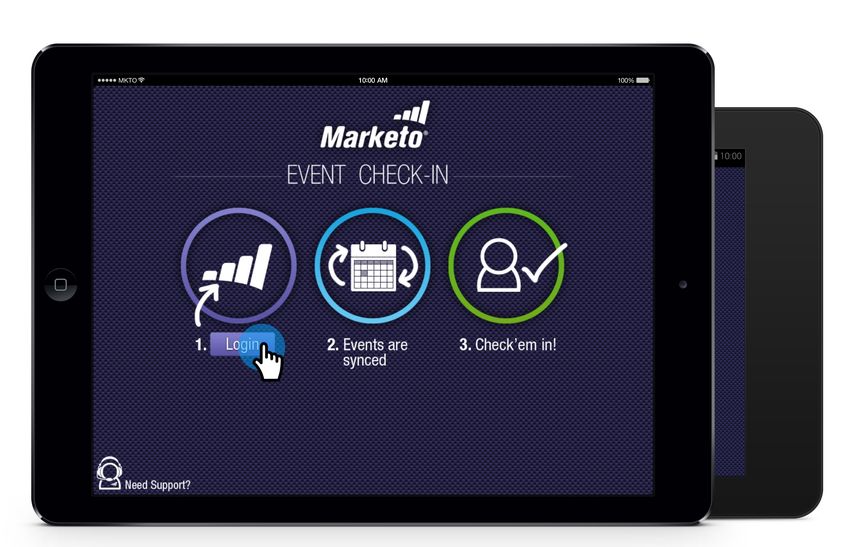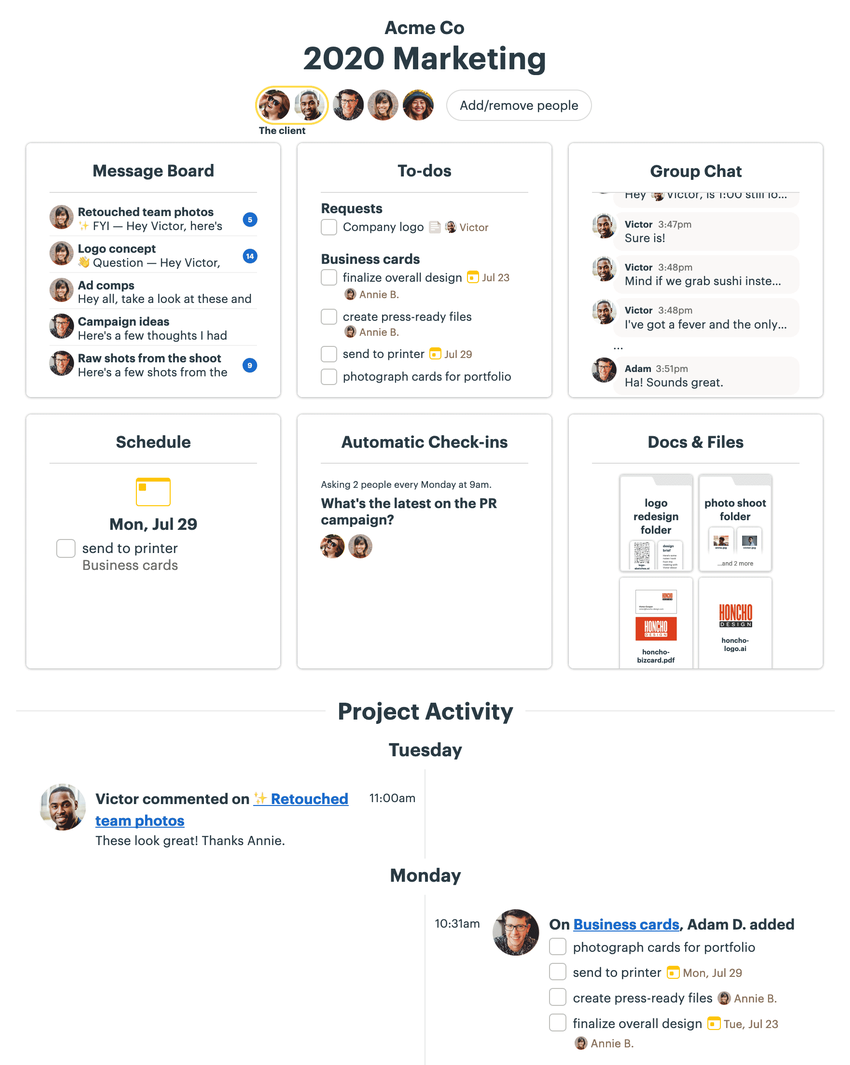During the last 20 years, technology has completely changed how modern office works. Computer hardware, software, systems and apps have allowed people to automate away a lot of the manual leg work, leaving them to focus on what’s important.
Over the last 10 years, apps have made a real impact on the typical working environment, process and approaches to work in the modern office. They not only save time and effort of manual work, but they also ensure the human error is (mostly) a thing of the past.
Apps can help in almost every area of a business, including marketing, sales, HR, development and many more. There is almost always an app available which attempts to make running a particular business function more productive and effective.
There are literally hundreds if not thousands of apps you can use to help improve productivity in the workplace. This guide will run over a few of the most popular types…
Project management apps

source:dribbble.com
One of the more popular types of apps for the typical office, particularly if it includes some form of marketing or development function, are project management apps. Project management apps, such as Trello or Evernote, bring the entire process of project management down from the whiteboard and into the digital world.
Project management apps offer an incredibly valuable view of all existing projects, how they’re setup, how they’re functioning, and whether they’re on track. They also allow different stakeholders from around the business to contribute with comments, actions, notifications and questions – all from their own machine (or location).

source:evernote.com
Project management apps can be especially useful for more complex projects, which may have multiple elements (or sub-projects) which can typically be difficult to manage and follow outside of an app. They’re also incredibly useful for larger teams which are made up of members who all need to contribute to the project management flow and provide updates. It can be especially useful for teams that are spread across varying locations, whereas traditionally they would need to meet up or make multiple phone calls/emails per week to report on progress.
Team specific apps
In the world of apps, there is a wide range of choices not only for business-wide or generic functions but also for more tailored requirements, such as team-specific applications. These can include marketing, sales, customer service, HR and technical areas.

source:docs.marketo.com
Apps like CIPHR for HR and Marketo for marketing offer a wide range of tools to make these teams more productive and efficient in their roles. These apps include a range of programs relating to the specific fields, which can help to manage a lot of the manual leg work, leaving team members to focus on more important and creative tasks. They can also help to reduce issues caused by human error, due to high-quality tracking and data analysis. Why spend time delving through countless spreadsheets of employee data, when you can have a single app which neatly files everything with easy and simple access at the touch of a button.
Apps of this kind also make working remotely much easier, by including all information and functionality available via an app, which can be accessed with a simple login username and password. Compared with traditional filing systems which are based on a local machine, apps can be much more useful and productive.
Communication apps
Most businesses, whether large or small, will likely be made of up different teams of different people. A successful business will have teams that need to be in constant communication or at least have access to it should an issue arise.

source:basecamp.com
Communication apps, such as Basecamp and Skype, instantly provide a channel of communication for an entire business. These can be used either as simple lines of communication, to ask questions or answer inquiries from team members, or be used at a more advanced level by setting up different communication groups for different projects or tasks. This approach gives a single place for all comms to run through, making it easier to reference previous conversations, as well as keeping up with what other members of the team might be discussing.
Meetings are often considered to waste a lot of time within a business. A communication app like Skype can allow people to have a quick meeting from their desks, which removes the need to book meeting rooms or even go off-site. It’s also incredibly valuable for members of the team who may work remotely or at a different location, removing the need for expensive and timely travel.
The most successful businesses have learned to embrace this kind of apps, as they add a huge amount of value to any team or business. They reduce time, effort and mistakes while allowing teams to work closer together in a much more effective and productive manner.

source:inc.com
The apps covered in this guide only touch the surface, and it’s likely that your particular business can benefit from a much wider range of apps to help improve productivity. You may think your business or particular teams within are too specialist for an app to exist – but don’t be so sure. Productivity and business apps are released every day, with a growing focus on honing in on specific areas of a business and even specific market types.
A final piece of advice would be to do your research. There are multiple apps for multiple areas, with project management apps running into the hundreds. Be sure the app you choose is the right one and meets your requirements, otherwise, you’ll face spending countless hours switching and upgrading to other apps which can frustrate team members and ultimately waste valuable time and effort.





